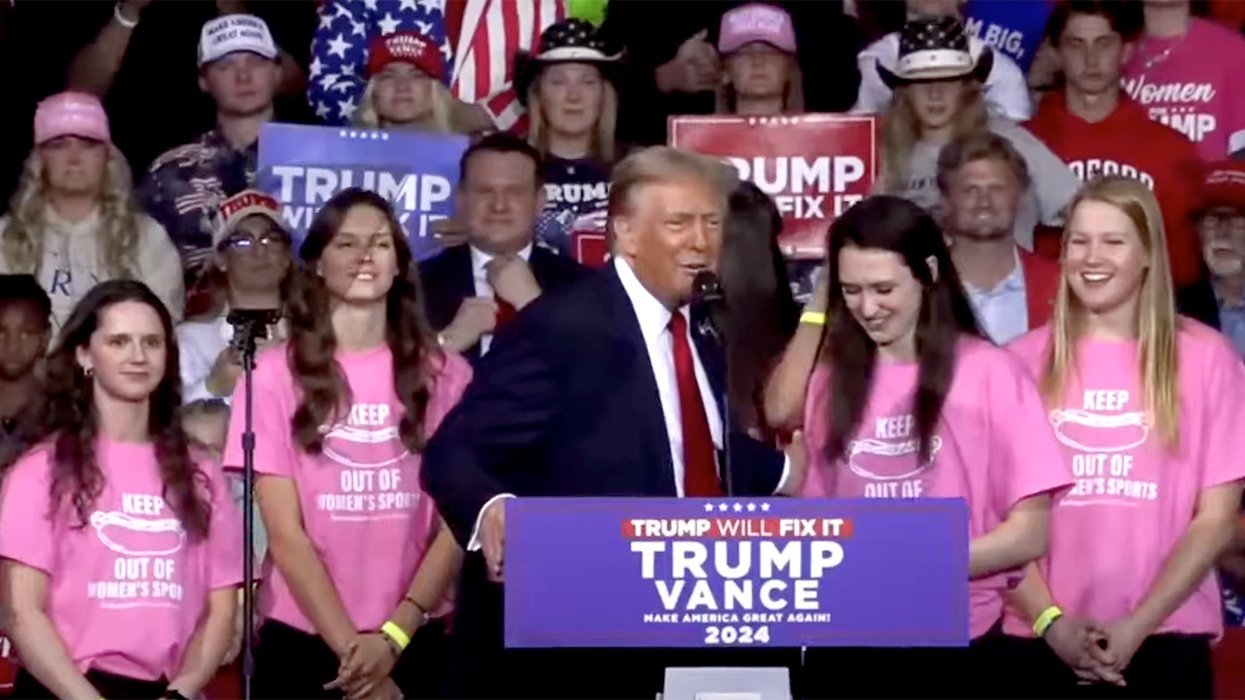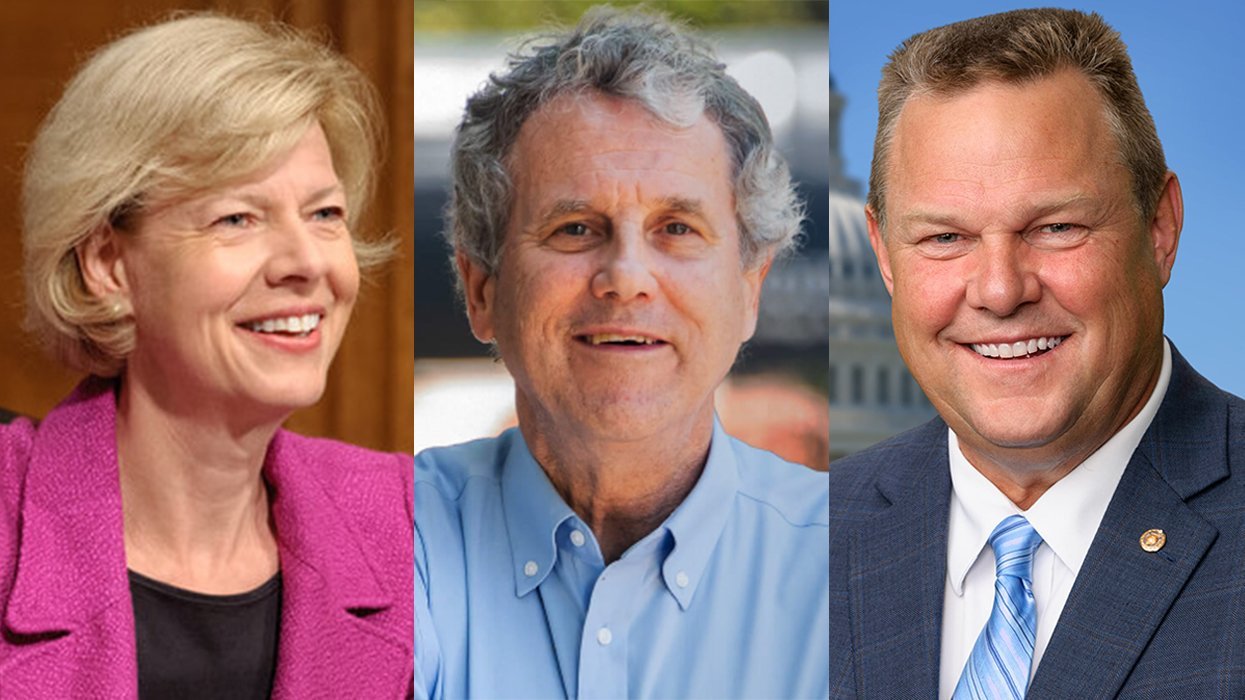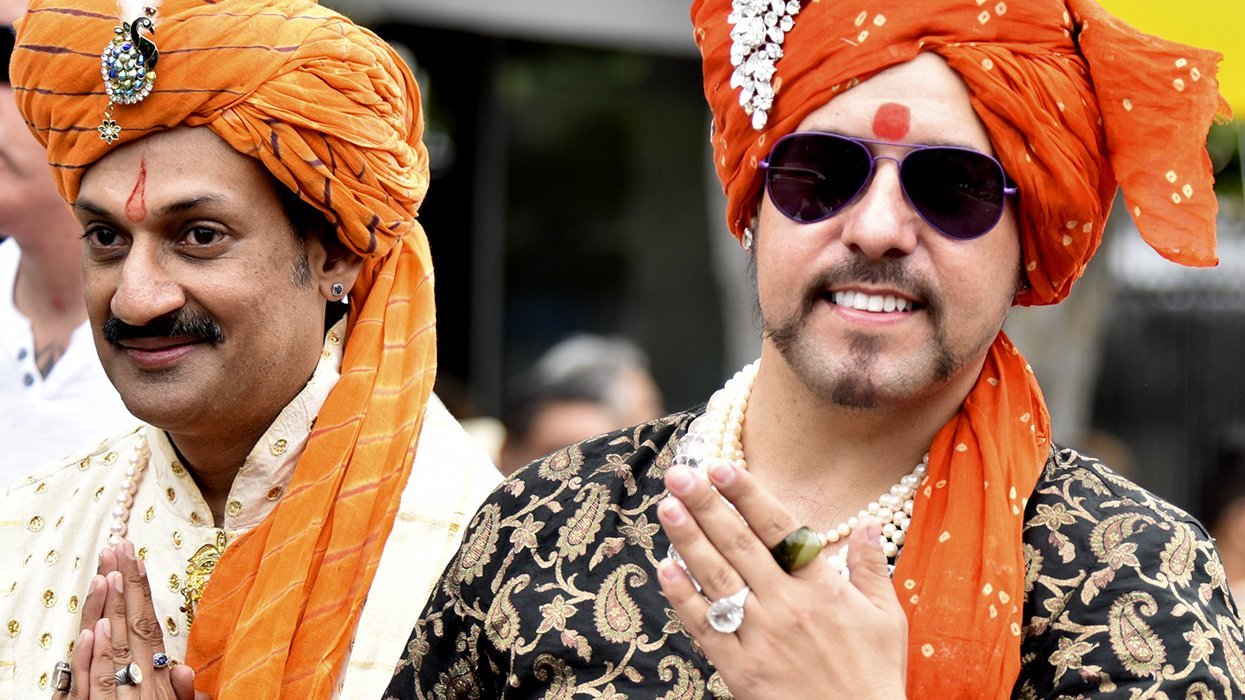All Rights reserved
By continuing to use our site, you agree to our Private Policy and Terms of Use.
Business, Faith Leaders Oppose Indiana 'License to Discriminate' Bill
Business, Faith Leaders Oppose Indiana 'License to Discriminate' Bill

The bill may be on a fast track to passage, but some influential voices are registering their objections.
With Indiana on the verge of enacting a "license to discriminate" law, major employers and others in the state are speaking out against it.
Scott McCorkle, CEO of tech company Salesforce, wrote a letter this week to the state legislature saying the proposed law, which would give businesses legal cover to turn away customers (such as same-sex couples seeking wedding-related goods and services) who offend the operator's religious beliefs, threatens Indiana's economic health, The Indianapolis Star reports.
"We have been an active member of the Indiana business community and a key job creator for more than a decade," McCorkle wrote. "Our success is fundamentally based on our ability to attract and retain the best and most diverse pool of highly skilled employees, regardless of gender, religious affiliation, ethnicity or sexual orientation."
Salesforce, based in San Francisco, increased its presence in Indiana in 2013 by buying Indianapolis-based marketing software company ExactTarget.
The Indianapolis Chamber of Commerce and several companies headquartered in the state, such as Cummins, Eli Lilly, and Eskenazi Health have also voiced concerns about the legislation, which has been passed by the state Senate and a House committee, with a vote by the full House to come. Gov. Mike Pence supports it.
Officials with the Indianapolis Chamber said the bill would result in "loss of business and inability to attract and retain talent," notes the American Civil Liberties Union in a recap of testimony against the measure. The legislation also "threatens to undo years of progress we have made in positioning Indianapolis as a welcoming community" and "would expose private businesses to an increased risk of costly litigation," chamber leaders commented.
Jessica Barth, vice president of legal affairs and chief counsel for Eskenazi Health, told lawmakers the bill "would undermine our patients' trust in every member of Eskenazi Health's 4,000-person staff and our health system in general" and "would leave us stuck in the middle when all we ask is that our staff serve all our patients equally."
Noted Eli Lilly spokeswoman Janice Chavers: "We're trying to cure diseases such as cancer and heart disease, and you need the best minds in the world to do that. And some of the best minds in the world don't want to come to a state that is seen as discriminatory."
And while the measure has the support of many conservative religious activists, some other faith leaders oppose it. "As Christians ... we reject the notion that religious belief should be used as a justification to deny civil rights or public services to any category of people, whether that category is race, sexual orientation, religion, ability, class or age," testified Rev. Linda McCrae, pastor of Central Christian Church in Indianapolis. "There was a time not so long ago in our country when African-Americans were not allowed to eat at certain restaurants or sit in certain sections of the bus. We decided as a nation that that was wrong, and that discrimination in the public sphere simply does not have a place in our democracy. Let us not go backward."
Despite the objections, the bill appears to be on a fast track through the House, the Star reports. House Republicans Thursday rejected Democrats' attempts to attach amendments that "sought to prevent child care ministries from using the proposal to skirt regulation, prohibit religious objections from discriminating or infringing on civil rights, and require businesses to display signs showing which groups they were religiously opposed to serving," the paper notes. Supporters of the bill claimed these were unnecessary.














































































